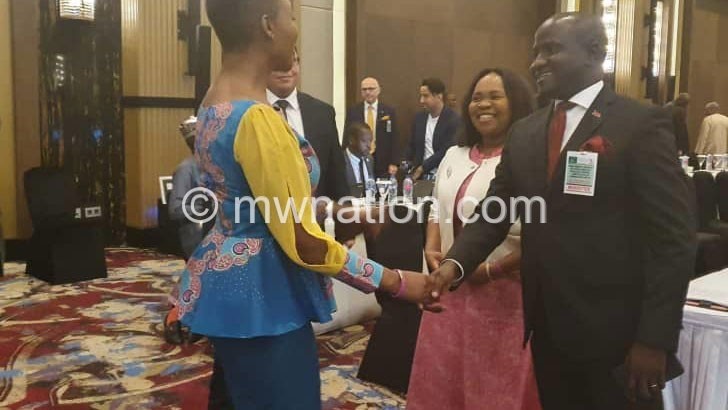Malawi elected into AU body
Delegates to the Third Ordinary Session of the Committee on Communications and Information and Communication Technology (CCICT-3) on Friday elected Malawi into the African Union (AU) Specialised Technical Committee (STC) on Communication and Information and Communications Technology (ICT) bureau.
Malawi will serve as second vice-chairperson, representing the Southern African region.
STC is a ministerial committee whose objective is to adopt strategies and action plans for ICT projects and programmes for implementation at continental and regional levels and has a two-year term.

Minister of Information, Civic Education and Communications Technology Mark Botomani, who attended the meeting, said Malawi’s election means the country will play an important role in ensuring that the Southern Africa region rapidly develops in the ICT sector.
He said: “ICT is an important part of development not just for Malawi but for Africa as a whole.
“Our election into the bureau means that Africa has trust in our country to positively contribute in the digitalisation of Africa which is important in development.”
The bureau will be chaired by Burundi, a country representing Central Africa and the first vice-chairperson is Egypt representing North Africa.
The bureau also has Sierra Leone representing West Africa and Djibouti representing East Africa as third and fourth vice-chairpersons in that order.
During its term, the CCICT-3 is expected to see the Digital Transformation Strategy for Africa adopted and implemented with the aim of having an integrated and inclusive digital society and economy that improves people’s lives.
AU Commissioner for Infrastructure and Energy Amani Abou-Zeeid told ministers at the session that digital evolution in Africa is the key in addressing various development challenges in Africa.
“This strategy recognises the importance of digital evolution in addressing development challenges. “We need harmonised interventions to achieve equal development in the continent and this strategy will help African countries achieve this,” Abou-Zeeid said





